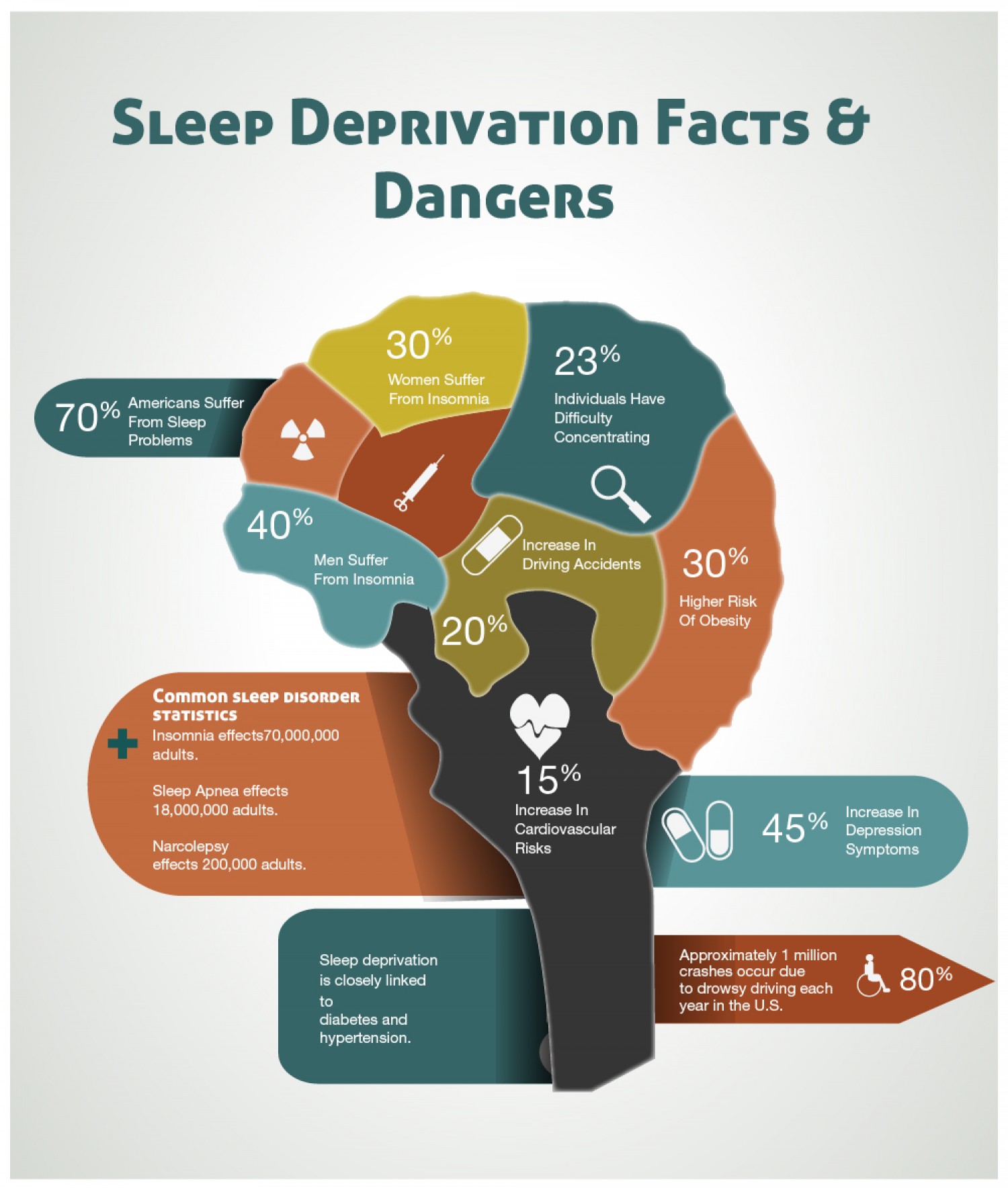Sleep and Well-being
Well-being is a term with many definitions, but overall, involves having a sense of satisfaction and healthfulness with our day-to-day lives. The opposite of well-being could include feeling poorly, discouraged, and melancholic every day.
Exhaustion, a consequence of not getting enough rest, can threaten well-being. When we are exhausted, we often hope to just "get by". However, well-being is more than just getting by.
Complete well-being implies satisfaction in one or more of the following areas:
- Emotional health
- Mental performance
- Productivity
- Physical health
- Physical performance
Chronic sleep deprivation negatively affects each of these core areas (depending on how bad the deprivation is) of well-being. Chronic sleep deprivation is most commonly caused by
- Sleep apnea
- Insomnia (caused by stress, medical conditions, or unknown factors)
- Parasomnias
- Restless leg syndrome
- Circadian rhythm disorders
Let’s look at the critical ways sleep affects your sense of well-being.

Emotional Health and Sleep
Lack of sleep will affect your emotional health. Case in point, 90% of people with depression report problems sleeping [source]. And while it certainly may be true that depression can lead to sleep deprivation, we have evidence that sleep deprivation can lead to depression. For example, those who suffer from insomnia or obstructive sleep apnea report significantly higher rates of depression [source].
In addition to the link to depression, sleep deprivation also negatively impacts motivation and social interactions. Both of these are integral to your sense of well-being.
Relationship Between Physical Performance and Sleep
A great example of how sleep can affect physical and athletic performance is found in the following study of The effects of sleep extension on the athletic performance of collegiate basketball players [link to article].
In the study, college basketball players followed their regular sleep schedule for 2-4 weeks to establish baseline performance. They then followed a 5-7 week sleep extension period that involved a minimum goal of 10 hours in bed each night.
In nearly all categories basketball players averaged a 10% improvement in performance. This study simply shows what getting lots of sleep can do for athletic performance. Sleep deprivation affects physical activities in terms of:
- Endurance
- Energy
- Focus
- Reaction time
- Recovery periods
Mental Performance and Sleep
Mental performance is usually the first thing people think of when they think of how lack of sleep can hurt you. Consider that at 17-19 hours without sleep performance on tests are equivalent or worse than that of a person with a blood alcohol level of .05% with 50% slower response speeds on tests.
At more than 19 hours without sleep, performance levels quickly degrade to 0.1% alcohol and higher, which is about the same as being drunk. Chronic sleep deprivation can quickly lead to such levels of cognitive performance [Source: Moderate sleep deprivation produces impairments…].
On the other hand, good sleep improves problem-solving skills and memory performance in both children and adults.
Physical Health and Sleep
Chronic sleep deprivation is not only poor for physical and mental performance, it’s bad for your health. Some examples are:
- Lower life expectancy
- Sleep deprivation linked to heart disease and stroke [source]
- Decreased immune function (in one study, people who received less than 7 hours of sleep were three times more likely to develop a cold than those with 8 hours or more of sleep)
- Strong link between sleep deprivation to weight gain
- Lower glucose metabolism and Type 2 diabetes risk [source]
- Link to increased inflammation [source] (those of you with IBS or other bowel disorders may have already noticed a relationship between your gut and your sleep)
Chronic sleep deprivation makes you more prone to weight gain, disease, and sickness and can take years off of your life.
Productivity and Sleep
Sleep will make a big difference in your productivity both at work and at home. Consider how sleep helps you be productive:
- Recover from distractions and interruptions faster
- Prevent burnout (sleep deprivation is one of the best predictors of burnout)
- You will make better decisions (see “mental performance and sleep”)
- You will have better memory (“Where did I put my keys?”)
- You will make fewer mistakes, as sleep deprivation causes slower response times and lower accuracy rates on simple tasks
In most jobs, sleep can make a big difference in your ability to perform well.
Final Thought
As you can see, sleep plays an integral role in being able to have a positive sense of well-being. If you live in Alaska and find that you are suffering from chronic sleep deprivation, please reach out to us by taking this free online sleep test and start your road to living a higher quality, restful life.


